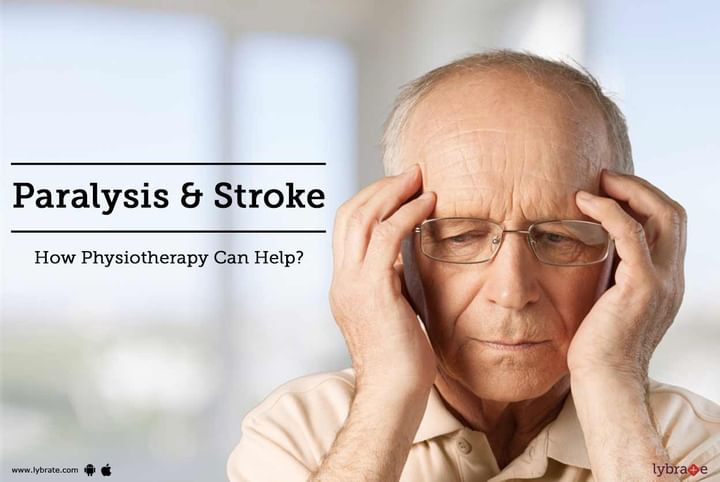Paralysis & Stroke - How Physiotherapy Can Help?
A stroke or paralysis can occur when the blood supply to that part of your brain is curtailed or drastically reduced. Due to this, the brain is deprived of the essential oxygen and the nutrients, and within a few minutes the brain cells can undergo severe damage and die. It is often treated as a medical emergency and can cause complications for life if left unattended.
Symptoms:
With regards to a stroke, a quick and an immediate treatment can be the difference between life and death. It is very much mandatory to note the symptoms of stroke and to impart the treatment accordingly. Some of them can include:
- Trouble with speaking: Your speech pattern gets affected, and you may have trouble talking.
- Paralysis: When the oxygen is cut off, a part of the body can become numb thus rendering it lifeless.
- Headache: A severe headache may occur that can make the body go into spasm. Dizziness and unconsciousness can follow it.
- Walking and mobility: You would be unable to walk on your own, or there can be a huge difference in your walk pattern. Most of the times, you might not be having any control over your legs.
Risk Factors
There are many risk factors associated with stroke and paralysis. The most common one is undoubtedly overweight. Physical inactivity, alcohol abuse, and drug abuse can contribute equally to the occurrence of stroke. Cholesterol levels, high blood pressure and old age may also be risk factors. Paralysis can be the biggest drawback of stroke where one part of your body can be lost to movements. You might also lose control of your face or arm, and this can affect your walking steps. This can be a life changing factor and more than medication sometimes physical therapy heals the person to an extent.
Physiotherapy for Paralysis:
You can feel helpless and frustrated, and this can lead to depression. There are many ways by which physiotherapy can help you. The therapies are made in such a way that you can try to lead a normal life without any hindrance, and this depends on the nature of the paralysis you are undergoing. In most of the cases, a person can get back at least 60% to 70% of his/her mobility back though not completely. Also, current medicines have advanced that there is a possibility to get back the movement in the paralyzed areas.
One of the major challenges you will face is to relax as the physical feeling of helplessness can hamper your thoughts in the long run. Stay relaxed and always remember that you are not alone. Take the help of a family member or a friend. Be relaxed all the time and make a determined effort with physiotherapy exercises. Avoid the lifestyle which you had before and embark on a healthier lifestyle and make sure you watch your diet at all times. Try to indulge in your favorite pass time and over a period start your daily chores without the help of an aid. You can undergo the physiotherapy exercises for life as they can be positive even after the condition subsidies. If you wish to discuss about any specific problem, you can consult a Physiotherapist.



+1.svg)
